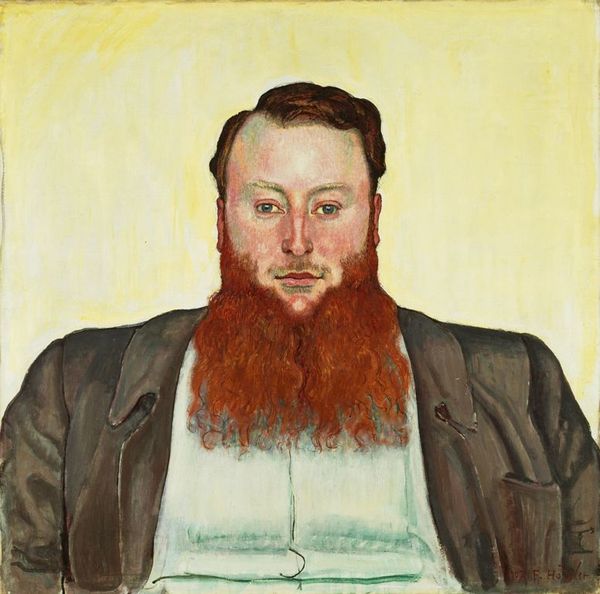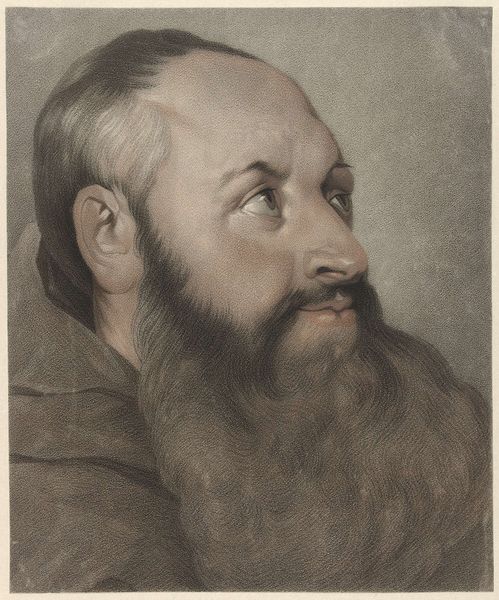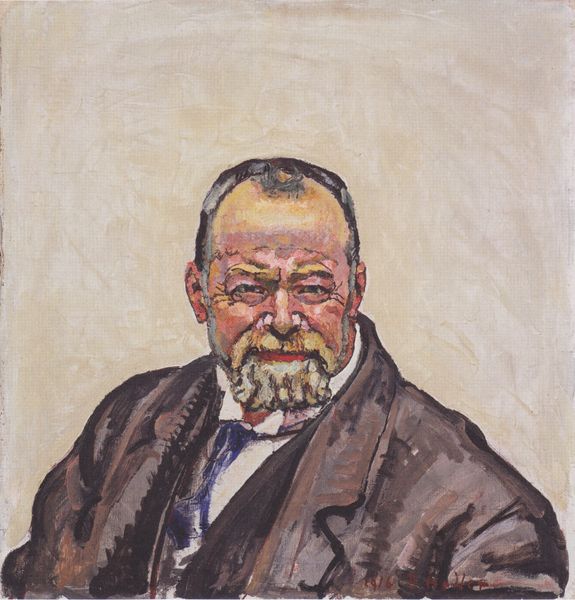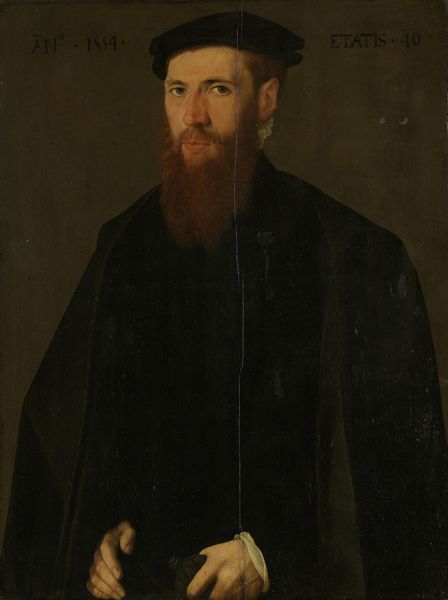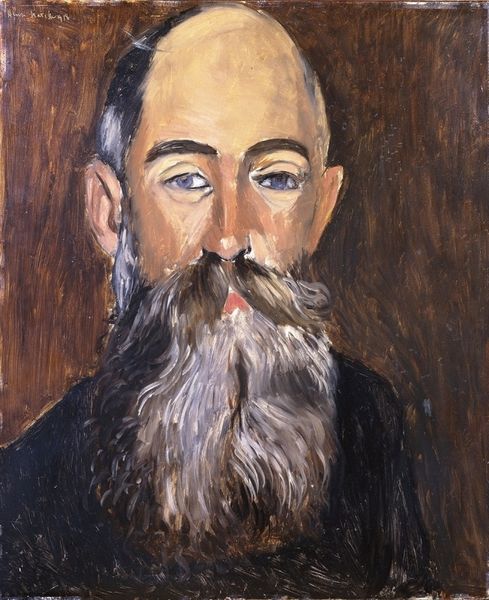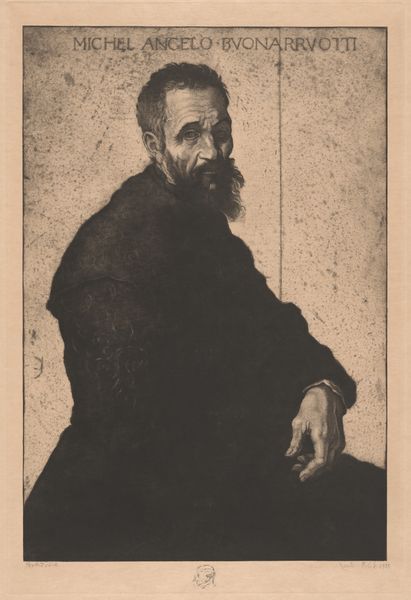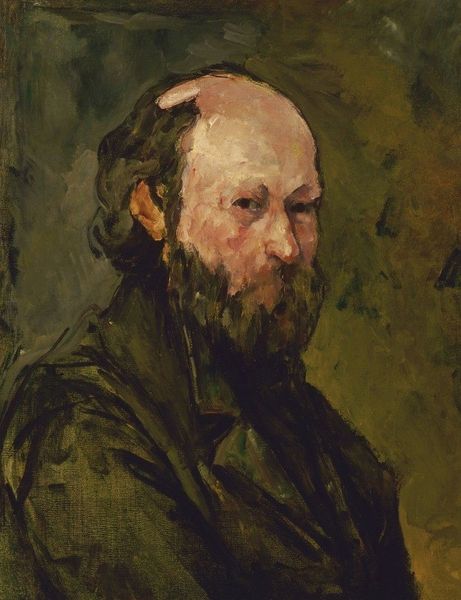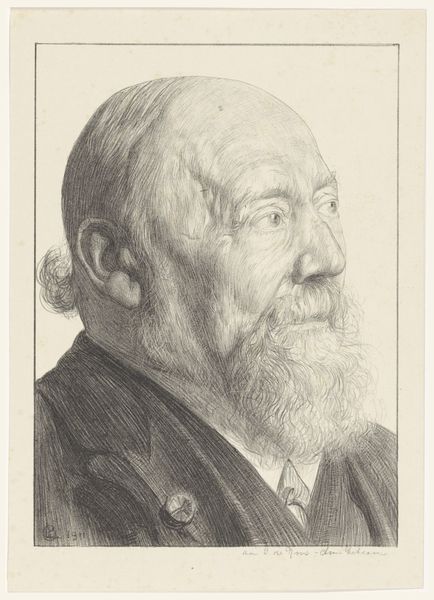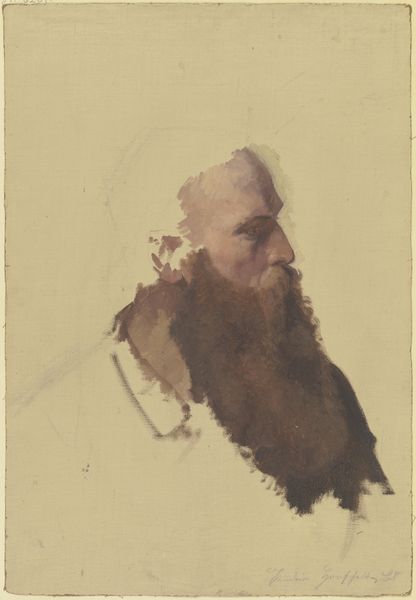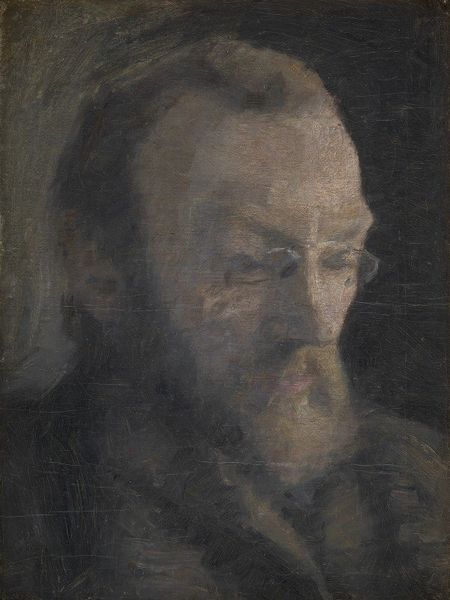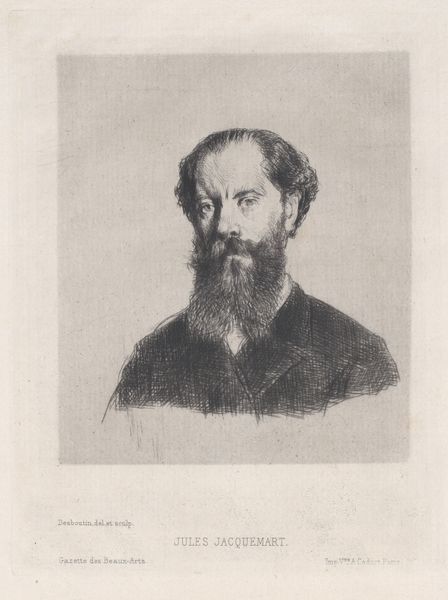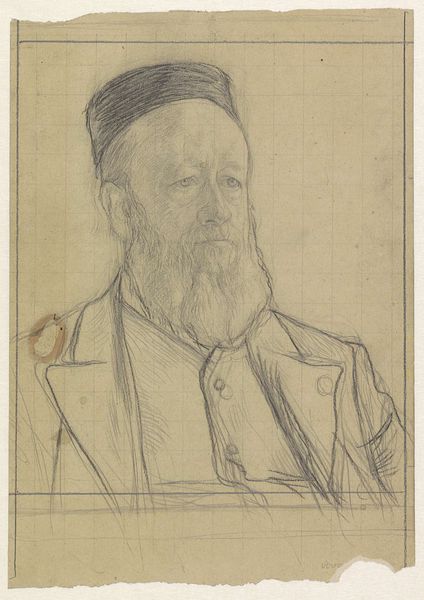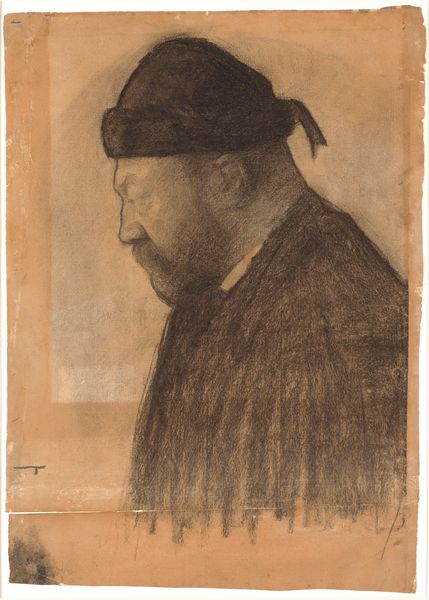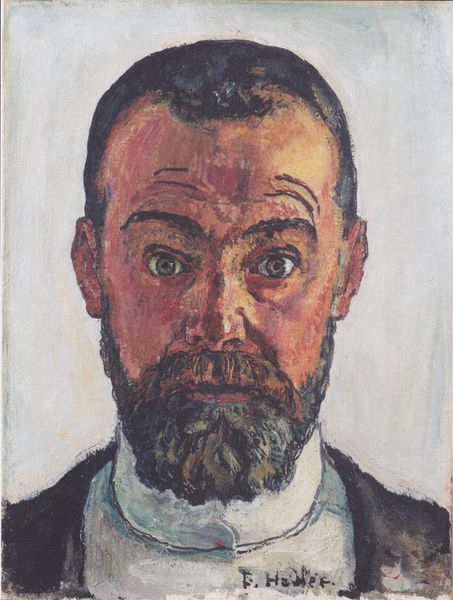
painting, oil-paint
#
portrait
#
self-portrait
#
painting
#
oil-paint
#
oil painting
#
portrait reference
#
male-portraits
#
expressionism
Dimensions: 65 x 46 cm
Copyright: Public domain
Editor: So, this is Ferdinand Hodler's "Portrait of James Vibert," painted in 1915, using oil on canvas. The reddish hues create a rather intense, almost unsettling feeling. What can you tell me about this piece? Curator: It’s interesting you find it unsettling. Hodler painted this portrait near the end of his life, during World War I, a period of great social and political upheaval. Do you think the context of the war may have impacted Hodler’s mindset? The rather direct, unflinching gaze reflects a growing sense of unease. Editor: That makes sense. I can see how the instability of the time could bleed into the work, impacting how someone is portrayed. It’s also interesting considering Expressionism at that time too... Did the expressionistic style also come to impact the politics of the art itself? Curator: Absolutely. Expressionism, broadly, aimed to convey subjective emotions rather than objective reality. In the context of war, artists often used this approach to critique authority and expose the psychological impact of the conflict on the individual, challenging traditional notions of portraiture itself. The painting shifts focus to the visceral rather than the purely representational. Editor: The choice to focus so intently on this individual definitely pulls you in. Do you think Hodler sought to critique other societal structures, too, or just wartime authority? Curator: Hodler's work frequently addressed themes of mortality and national identity, concepts deeply entwined with social and political consciousness. Vibert’s own history, perhaps his social standing, and personal connection with Hodler may also provide ways of understanding what Hodler aims at here. I find this interplay of elements so provocative in understanding its deeper messages about the politics of the time. Editor: This has changed the way I view the portrait completely! I was stuck on the expression, and now, I think I see his position within the wider cultural narrative. Thank you! Curator: Absolutely, exploring the intersections of history, politics, and artistic expression opens up a whole new world of understanding, doesn't it?
Comments
No comments
Be the first to comment and join the conversation on the ultimate creative platform.
